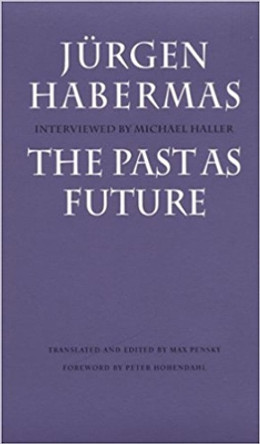Description
Here, as in his earlier The Past as Future, Habermas emerges as an inspired analyst of contemporary German political and intellectual life. He repeatedly criticizes recent efforts by historical and political commentators to 'normalize' and, in part, to understate the horrors of modern German history. He insists that 1945 - not 1989 - was the crucial turning point in German history, since it was then that West Germany decisively repudiated certain aspects of its cultural and political past (nationalism and antisemitism in particular) and turned towards Western Traditions of democracy: free and open discussion, and respect for the civil rights of all individuals. Similarly, Habermas deplores the renewal of nationalist sentiment in Germany and throughout Europe. Drawing upon his vast historical knowledge and contemporary insight, Habermas argues for heightened emphasis on trans-European and global democratic institutions - institutions far better suited to meet the challenges (and dangers) of the next century.
About the Author
Jurgen Habermas is a German philosopher and sociologist in the tradition of critical theory and pragmatism. He is perhaps best known for his theories on communicative rationality and the public sphere. In 2014, Prospect readers chose Habermas as one of their favourites among the "world's leading thinkers".
Steven Rendall is professor emeritus of romance languages at the University of Oregon. He has translated more than forty books into English.
Reviews
"This book is very worthwhile reading. As a brief introduction to Habermas's political thought and as an introduction to where he is now this book cannot be surpassed." Journal of Political Studies
Jurgen Habermas has been awarded the prestigious 'Friedenspreis des deutschen Buchhandels' prize for 2001
Book Information
ISBN 9780745620459
Author Jurgen Habermas
Format Paperback
Page Count 187
Imprint Polity Press
Publisher John Wiley and Sons Ltd
Weight(grams) 255g
Dimensions(mm) 215mm * 126mm * 16mm









